Being a landlord is a great opportunity that comes with a hefty list of responsibilities and duties that can make or break a successful property management experience—for both you and your tenant.
Here are some tips for property management for landlords.
Choose a Good Tenant
Refinancing your mortgage is the process of getting a new loan for your home. This new mortgage loan replaces the old one.
This might seem like the most obvious tip—who would go out of their way to choose a ‘bad’ tenant? And sure, it might appear easier said than done, but there are a few ways to scope out the ideal candidate.
It might take a little extra time to find a good tenant rather than picking the first person who applies. Be aware of your listing choices, such as ad placement or photo quality. Listing on Craigslist or Facebook Marketplace might make finding a student or family easier, whereas a pay-to-list realty site might target more specific applicants. Be sure to know who your ideal audience is—who would fit you and your property best.
In general, it’s worth it to find a long-term tenant who expects to stick around for a while so that you don’t have to keep paying the in-between clean-up costs. Ask appropriate questions and follow up with listed references and employers. Doing the work now can save time and hassle in the future.
Put it all in writing
One of the best ways to keep miscommunications and potential issues to a minimum is by having a clear list of policies, protocols, and resources in writing in the lease. Be sure to have a list of rules for the property and protocols for various situations. For example, if there’s a leaky sprinkler, who is the first person the tenant should call? What are they expected to do, and what is your own role in fixing the problem?
When you lay out what is allowed versus an issue, you can avoid sticky situations and give your tenants a point of reference. Plus, listing out relevant contact information and steps in case of emergencies can save you and them a lot of time and stress should any problems arise.
By putting your expectations in writing, you’re making everyone’s life easier.
Schedule a routine check-up
When creating your lease, create a schedule for routine inspections throughout the tenant’s stay. You don’t want to get too crazy or invasive of their space, but about once every year or two, you should inspect the property to make sure everything is still functioning correctly.
Things to inspect include the smoke alarms, CO-2 alarms, HVAC systems, windows, water lines, the roof, air conditioning filter, and all the appliances.
Be as timely as possible with repairs
Being responsive is a critical piece of owning and managing a property. This applies to several different areas, such as responding to questions and being available for emergencies, but is especially relevant when a tenant requests repairs.
When you boil down a landlord’s role, it’s to make sure that the home is safe to live in. It’s up to you to uphold your side of the lease and address any concerns raised by the tenant. This appeases them and creates a smooth relationship with them, but is also beneficial to the property; sometimes, minor problems become big when left unaddressed for too long.
When fixing repairs, use your best judgment to decide if you’re qualified or the task would better suit a professional. To save money, call around for quotes from different companies, consider having an emergency fund to pull from, and run a cost analysis on patch repairs versus full ones.
Stay financially organized
Maintaining financial records is vital. Be sure to keep up-to-date payment records for everything related to the property: tenant rent, maintenance, trash removal, utilities, ext. If keeping track of property expenses is too big of a hassle, it’s always a good idea to hire a bookkeeper.
Don’t be afraid to hire help
Being a landlord and managing a property (or several) comes with many moving pieces and different jobs; it’s okay to hire professionals to lighten the load. Whether it’s a plumber or electrician for certain repairs, a painting company before a tenant moves in, or an accountant to keep track of property expenses, there’s help available when necessary. Outsourcing can save time and money in the long run.
Stock up on supplies
It can be helpful to have an assortment of supplies at your disposal for when you will inevitably need them. Though every property has its specific needs, generally, you can expect to change a lightbulb or filter—why not have a small supply ready to go on hand? An inventory list is a helpful thing to have.
Other property management supplies might include a template for a vacancy flyer if you need to post a listing in the future. Or blank lease files for your next tenant. Try to come up with a list of business-related essentials as well as maintenance-related ones.
Have questions?
If you’d like to learn more about property management or buying a rental property, connect with the team at Sopris Realty today. Contact us online or give us a call at 970-945-7677.

